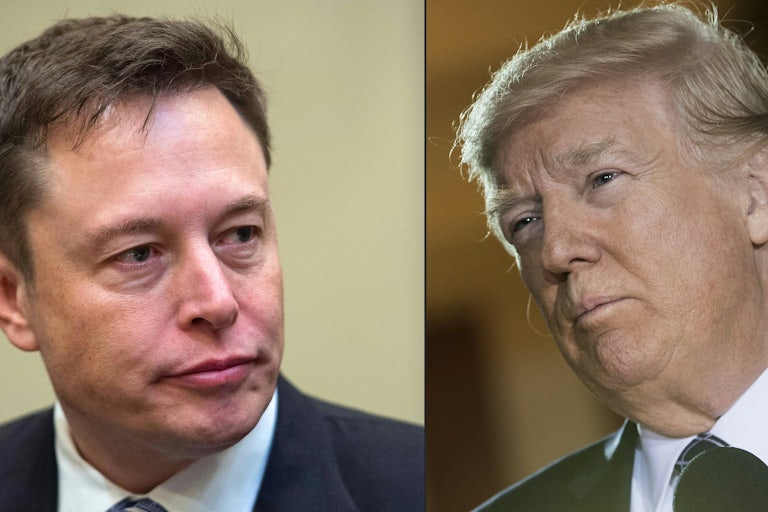Fourteen States Sue Musk and Trump, Calling Tech Billionaire’s Government Role Unconstitutional

A coalition of fourteen states filed a lawsuit on Thursday against Elon Musk, his Department of Government Efficiency (DOGE), and President Donald Trump, arguing that Musk’s sweeping influence over federal government operations is unconstitutional. The lawsuit, led by New Mexico, challenges Musk’s authority to restructure government spending and workforce reductions without Senate confirmation, claiming that his unchecked power violates the Appointments Clause of the U.S. Constitution. According to the lawsuit, Musk’s ability to eliminate entire departments and cut government jobs with minimal oversight is a direct threat to the foundational principles of American democracy. “Mr. Musk’s seemingly limitless and unchecked power to strip the government of its workforce and eliminate entire departments with the stroke of a pen or click of a mouse would have been shocking to those who won this country’s independence,” the plaintiffs wrote. The legal challenge asserts that Musk’s role as head of DOGE grants him de facto executive powers beyond those of any unelected official. “There is no office of the United States, other than the President, with the full power of the Executive Branch, and the sweeping authority now vested in a single unelected and unconfirmed individual is antithetical to the nation’s entire constitutional structure,” the states argued in the filing.

The lawsuit was filed by attorneys general from Arizona, Michigan, California, Connecticut, Hawaii, Maryland, Massachusetts, Minnesota, Nevada, Oregon, Rhode Island, Vermont, Washington, and New Mexico. The coalition is requesting that the court immediately block Musk and his team from making significant changes to government policies, including the disbursement of public funds, federal contracts, regulatory decisions, and employment matters. Additionally, they seek to bar Musk from accessing or modifying government databases, citing risks to national security and data integrity. The case represents a significant legal battle over the balance of power between elected officials and private individuals wielding government authority. The Trump administration, with Musk’s leadership at DOGE, has aggressively pursued a broad rollback of federal agencies and budgetary reductions. While the administration argues that these moves increase efficiency and reduce wasteful spending, critics contend that Musk’s unchecked role lacks legal legitimacy. New Mexico Attorney General Raúl Torrez, speaking during a press call about the lawsuit, described Musk’s authority as a dangerous concentration of power. “Our constitutional order was founded in part to guard against the accumulation of state power in the hands of a single individual, and while that construction was first focused on the abuse of power of an 18th-century monarch, it is no less dangerous in the hands of a 21st-century tech tycoon,” Torrez said.
In a related legal challenge, multiple current and former employees of the United States Agency for International Development (USAID) also filed a lawsuit against Musk on Thursday. The plaintiffs in that case argue that Musk’s appointment should have required Senate confirmation, given his level of authority over the agency’s operations. The Trump administration, with Musk’s assistance, has sought to significantly scale back USAID’s functions, restricting the distribution of foreign aid and moving to reduce the agency’s workforce both domestically and abroad. USAID has historically played a critical role in delivering humanitarian assistance, economic development, and disaster relief worldwide. However, under Musk’s oversight, the agency has faced severe funding limitations and mass layoffs, part of a broader effort to reshape America’s role in global aid distribution. The lawsuit from USAID employees contends that these changes were enacted without legal justification and in direct contradiction to congressional mandates. The legal battle over Musk’s role within the Trump administration is expected to intensify in the coming weeks, as additional challenges to his authority emerge. Legal experts suggest that the case could set a precedent regarding the extent to which private citizens can wield governmental powers without official confirmation.

Trump has consistently defended Musk’s involvement in government affairs, arguing that his background in business and technology makes him uniquely qualified to lead efficiency reforms. Supporters of Musk’s government role claim that traditional bureaucratic structures have long been inefficient and that DOGE’s restructuring efforts are necessary to modernize federal operations. However, critics argue that the unprecedented nature of Musk’s influence, combined with his lack of accountability to voters or legislative oversight, creates significant constitutional concerns. “The fact that an unelected billionaire can make sweeping decisions about government funding, staffing, and data access without any congressional oversight is deeply troubling,” said constitutional law professor Michael Stein. The lawsuit has reignited broader debates over the role of private industry in government and whether figures like Musk should have direct influence over federal policies. While business leaders have historically played advisory roles in government, Musk’s position at DOGE goes far beyond traditional advisory capacities, giving him direct control over critical functions.

The outcome of the lawsuit could have far-reaching implications, potentially limiting or redefining the extent to which private citizens can assume governmental authority. For now, Musk remains in control of DOGE, continuing efforts to reshape federal agencies despite mounting legal challenges. With both state attorneys general and federal employees challenging his authority, the case could mark a significant turning point in the structure of government oversight and constitutional governance.



